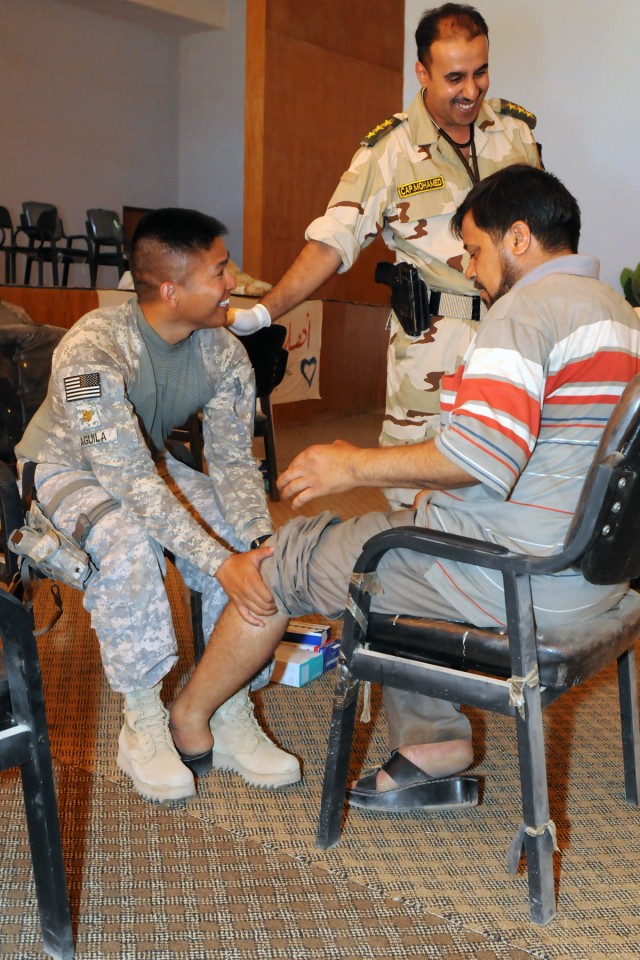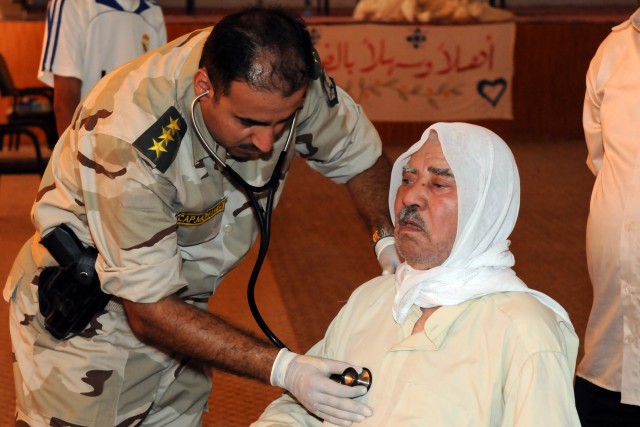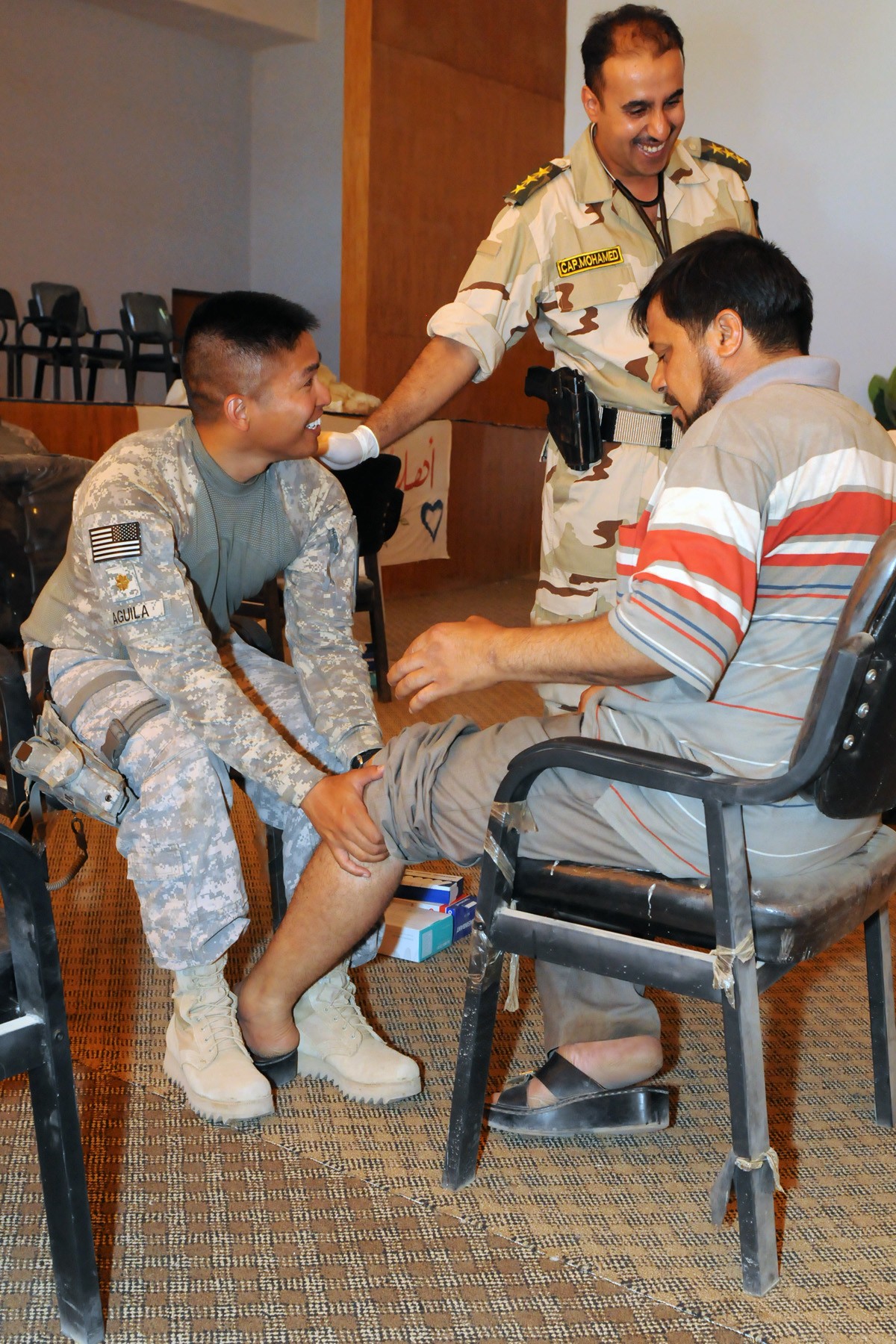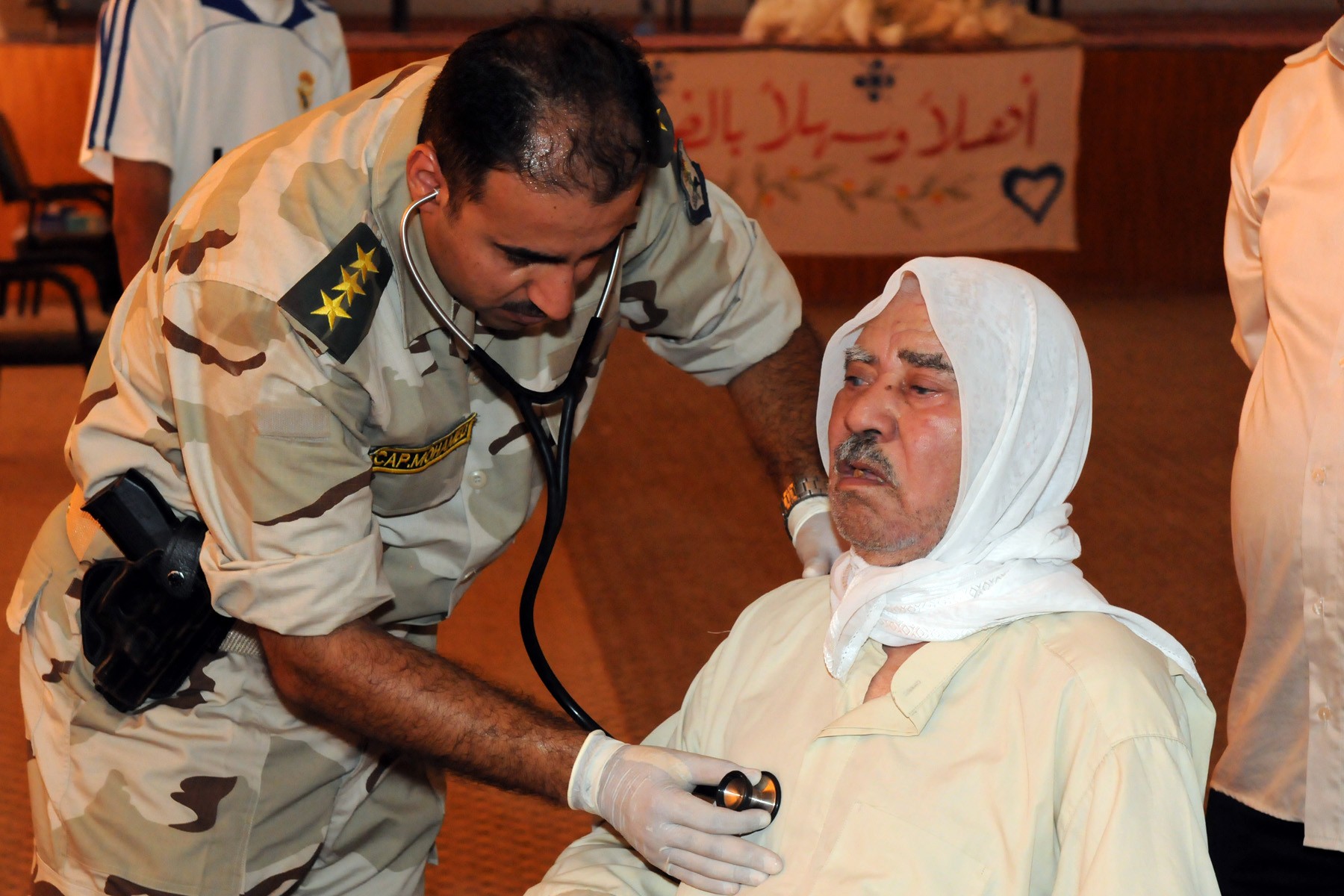BAGHDAD (Army News Service, July 26, 2010) -- As the early morning summer sun rose over Abu Ghraib, July 22, American Soldiers unloaded medical and comfort supplies into a government building, called Quiamacam, in preparation for a joint medical engagement.
It was the 4th Stryker Brigade Combat Team, 2nd Infantry Division, United States Division-Center, that sponsored the engagement, but it was medical personnel assigned to 6th Iraqi Army Division, and doctors from a local hospital, who provided the majority of medical care to civilians who gathered there. The Iraqi medical personnel showed with a goal in mind.
"It is to increase our communications with the locals and give them the chance to receive medical aid," said Capt. Mohamed, the division surgeon assigned to 6th Iraqi Army Division. "We will try to help as many people as possible."
Mohamed said the area in Abu Ghraib used to be quite dangerous and his heart goes out to the people who live there. He added the Iraqi Army's job was not only to secure the people from harm, but also to help those in need.
Maj. Michael Perreault echoed Mohamed's sentiment about the importance of the medical engagement in Abu Ghraib.
"It engages the Iraqi Security Forces with the local population and it demonstrates they are here to help," said Perreault, a Charleston, S.C., native and the brigade surgeon. "It helps foster cooperation on multiple levels."
Once the building was set up to receive patients, local residents began lining up for health care. They were first searched for security purposes and brought into the building to be screened. When the inside waiting area filled up, the rest waited outside under a tent to avoid the scorching sun. One by one, patients were asked about their ailments and the doctor conducting the initial screenings pointed them in the right direction.
Awaiting them were teams made up of U.S. and Iraqi medical personnel.
"Primarily, the Iraqis lead. They will assess patients, provide medical care and we will assist," said Maj. Eric Aguila, a native of Lacey, Wash., and a surgeon assigned to 2nd Squadron, 1st Cavalry Regiment, 4th SBCT. "It's good to show the capabilities of the IA and the local hospitals to show the people they can be taken care of. It helps lead to a free Iraq."
He said he hopes the people will appreciate and recognize the freedom they have suffered for and see that the security forces and medical staff are here to help.
Dozens of patients were seen and although some of them felt ill, most left with a smile on their faces and could be heard enthusiastically thanking the medical personnel.
"I love interacting with the people and giving them attention," said Spc. Lisa Roberts, a medic assigned to Company C, 702nd Brigade Support Battalion, 4th SBCT. "Medical support is important and they don't have access to this type of care. It has been a positive experience for us, and hopefully for them."
As patients left the treatment area, they were able to get medicines and comfort items like blankets, shoes and toys for the children. Iraqi and U.S. personnel handed out the items to families and individuals.
With all the patients treated, the U.S. Soldiers left the facility and said their goodbyes to their Iraqi counterparts as hugs and handshakes were shared around the room.
"The U.S. forces are trying so hard to help us, as much as they can," said Mohamed. "They are my friends and we had good relationships with them."
(Sgt. Phillip Valentine writes for the 366th MPAD, USD-C)




Social Sharing